Simon, our driver who is originally from the Indonesian city of Atambua in West Timor, transports us from Baucau to the small town of Venilale in the hilly interior of Timor-Leste. The roads are in a fairly good condition, but with few vehicles passing by it is not surprising to find them so.
Moments after I fall asleep, Simon suddenly pulls over, but we are not yet in Venilale. Johnny comes out of the car and walks across the road, showing us hollow limestone chambers on a hillside. Gua Tujuh – which means seven caves in Bahasa Indonesia – is an artificial cave system built by Japanese troops when they occupied Portuguese Timor during World War II. Strategically positioned to the north of Australia, the Japanese aimed to gain control of the entire island of Timor from the Dutch – who occupied the western part of the island – and Portugal – who controlled the east.
“More than 4,000 people were killed in these caves,” Johnny says. “Timorese women were told by the Japanese that their sons and husbands were sent to Japan to study. But they never returned.”
Despite the dark history of these caves, the silence is soon broken by the giggles and laughter of local children who seem excited to see foreign visitors coming near their village. Johnny plays around with them, joking that he will take them away in his car. The kids burst into laughter and run around as Johnny gives chase.
Having taken enough photographs of the caves, and of course the kids, we bid them goodbye and continue our journey south to Venilale. With a total population of around 16,000, Venilale could have been forgotten by many people who visit Timor-Leste. But this rural town holds a significant role in the country’s education – and to some extent, the struggle for independence – as it is where many of Timor-Leste’s political leaders went to school. Xanana Gusmão and José Ramos-Horta themselves attended the town’s Escola do Reino de Venilale, the most prestigious elementary school in town.
Earlier that day when we were still in Baucau, Johnny told us that both leaders also attended the same secondary school in Baucau which was exclusively open for Portuguese nationals and children from Timorese royal families, a group to which both Gusmão and Ramos-Horta belong. They even went to the same college in Laclubar in Manatuto District.
I joke with Johnny, saying the older they got, the closer they moved to Dili.
Johnny tells us that during the Indonesian time, all children, regardless of their family background, were entitled to an education. Therefore the once exclusive Portuguese school in Baucau was transformed into a public school.
On our way back to Dili through Baucau I notice a modest gapura ubiquitous in many Indonesian cities engraved with the numbers 17-8-98. The tradition in Indonesia is towns and villages would decorate their gapuras every year to celebrate the country’s independence day on August 17. It is apparent that August 17, 1998 was the last time the people of East Timor celebrated – reluctantly or not – Indonesia’s independence day. Time stands still in some parts of Timor-Leste as many signs, monuments, and other things left by the Indonesians are scattered all across the country, untouched.
A small rusty board on the roadside from Venilale and Baucau reminds drivers to be careful, written in Bahasa Indonesia and bearing the emblem of the Indonesian highway corporation. Looking at it reminds me of how the British naturalist, Alfred Russel Wallace, upon visiting the island in the late 1860s described Portuguese Timor in his widely acclaimed book, The Malay Archipelago:
“The Portuguese government in Timor is a most miserable one. Nobody seems to care the least about the improvement of the country, and at this time, after three hundred years of occupation, there has not been a mile of road made beyond the town [Dili], and there is not a solitary European residence in the interior.”
Indeed, the 24-year Indonesian occupation of East Timor resulted in the development of vital infrastructure such as roads and bridges. But let us not forget the oppression and violence targeting the local people during that period, which brought the full wrath of the Indonesian military and pro-Indonesian militia following the independence referendum in 1999.
* * *
Back again in the sleepy capital of Dili, we meet Carmen who looks as lively as before. Curious about our days in Timor-Leste she asks what we think of the places we have visited, and we tell her about everything, including Johnny and all his stories.
“You may choose to believe it, but you may also choose not to believe.” She expresses her skepticism and quickly adds that “sometimes they make up stories.”
I personally don’t believe some exaggerations that Johnny tells me, but I choose to take it seriously when he tells us about all the atrocities carried out by the Indonesian military. Despite not being able to make a reconciliatory effort as I intended, I can at least get an honest perspective from the son of an ex-guerrilla fighter about how it was during the struggle for independence from Indonesia.
“Will you stay in Timor-Leste for much longer?” James asks Carmen, curious about a woman who left Portugal more than 11 years ago to live in a new, faraway country since its independence in 2002.
“No, I will stay only for another year, then I will probably go back to Portugal.”
She raises her concerns about the slow steps – baby steps – taken by the government to improve not only the country’s economy, but overall living standards.
“Corruption is everywhere here. In Portugal we also have corrupt officials, but they try to hide it. And at least they do something for the people. But here, they openly pocket the oil money.” Carmen cannot hide her frustration.
“When the Australians and other foreign troops and officials came to East Timor after the referendum, things were in order. East Timor had the opportunity to learn from other countries. But after they left, people just want to do things their own way.”
Oil has brought immense income to the young country. But as is the case with many nations, particularly among developing countries, wealth is not widely distributed among the people. Wars have begun in many parts of the world due to this reason. But only a few countries have learned and successfully manage things in a much better way. Timor-Leste has the potential to have a strong economy – backed by the hydrocarbon, coffee and tourism industries – only if all elements of the nation have the same awareness of that goal.
Johnny graduated from university in Dili, majoring in Petroleum Sciences. Despite his current job as a tour guide, he has high hopes for the future of his country. “I want to continue my study one day and learn geology,” he says, expressing his hope to one day take part in developing the country’s energy industry.
Hope runs high, but a lot of work still needs to be done.
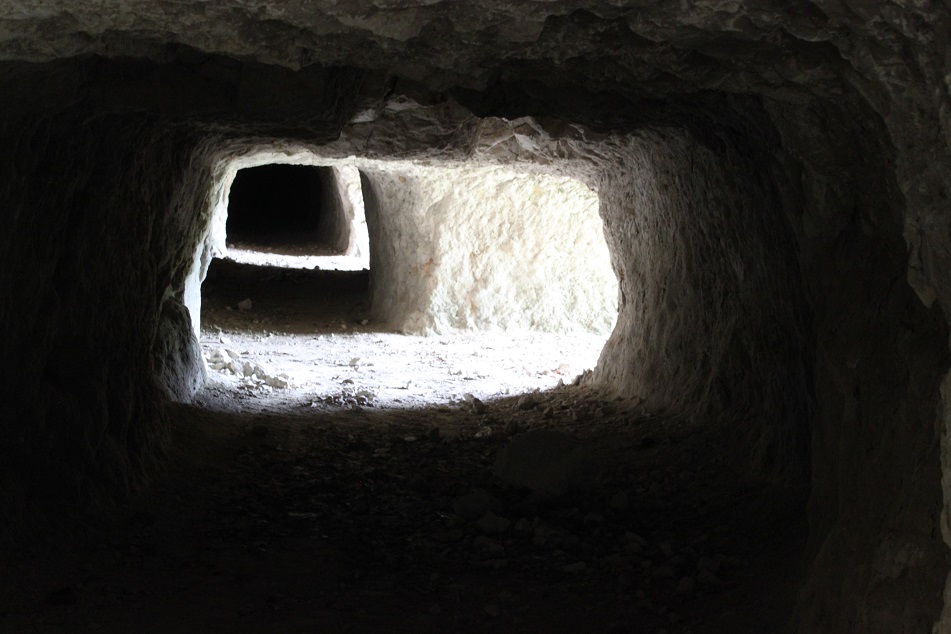
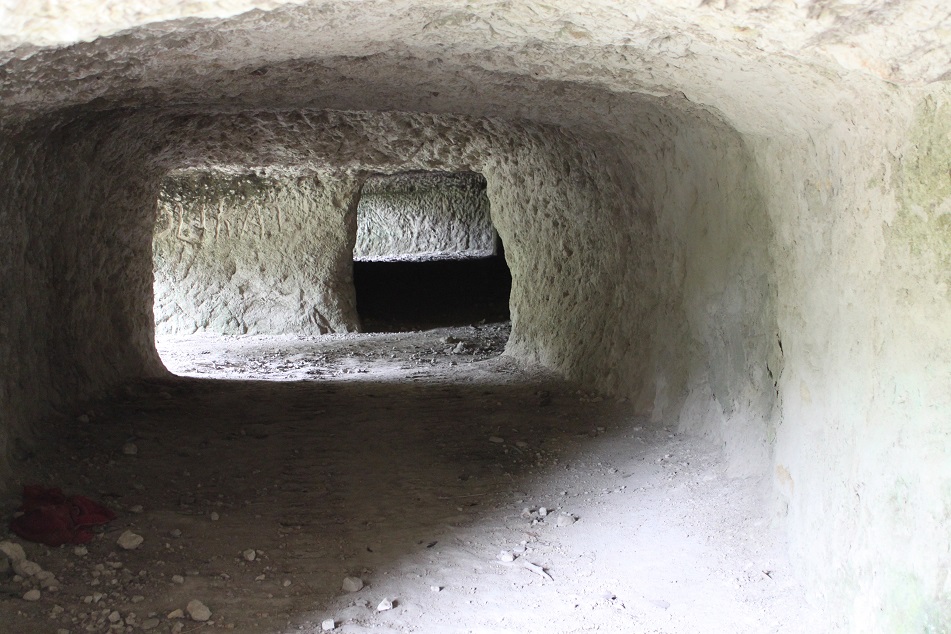
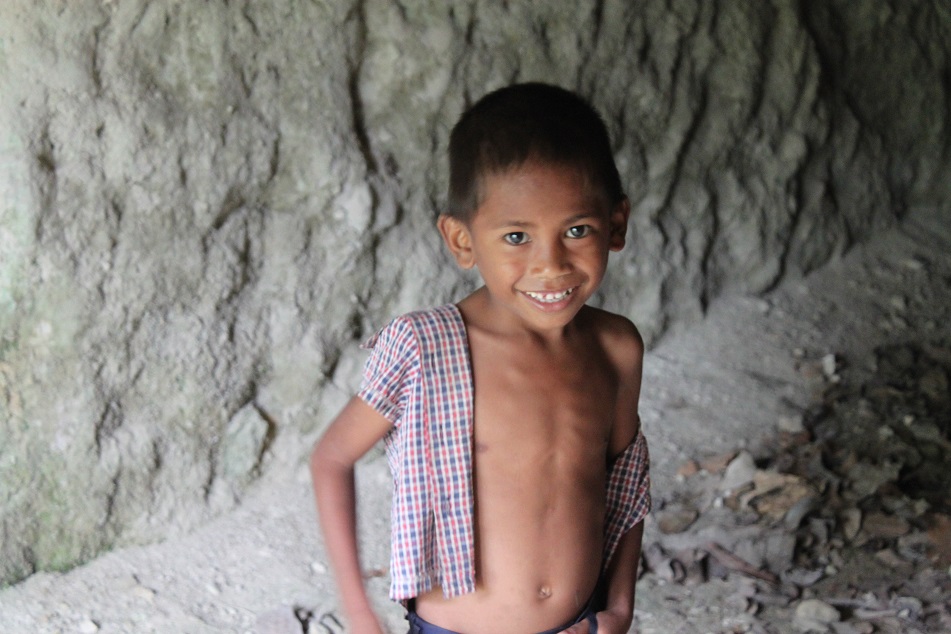
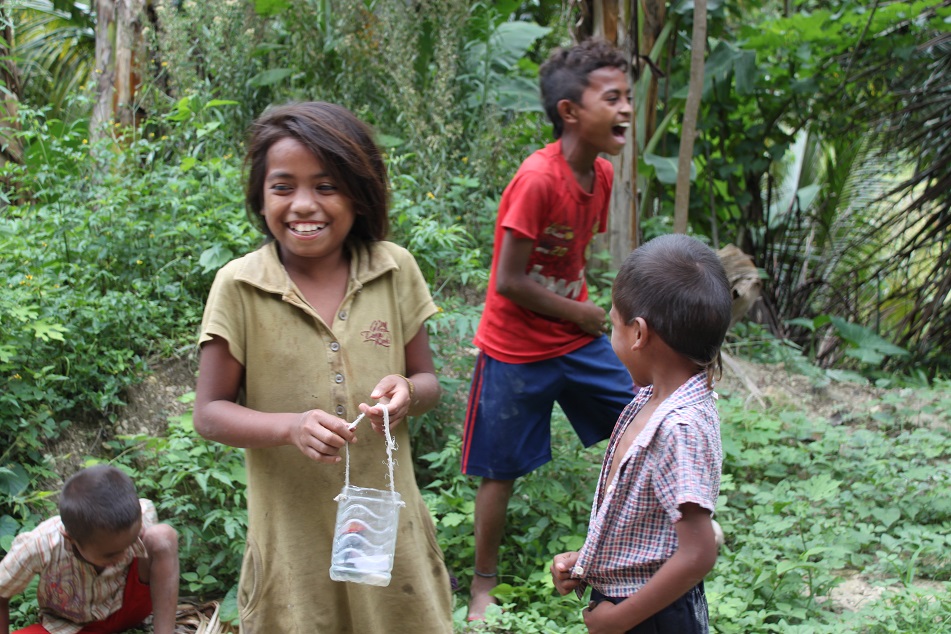
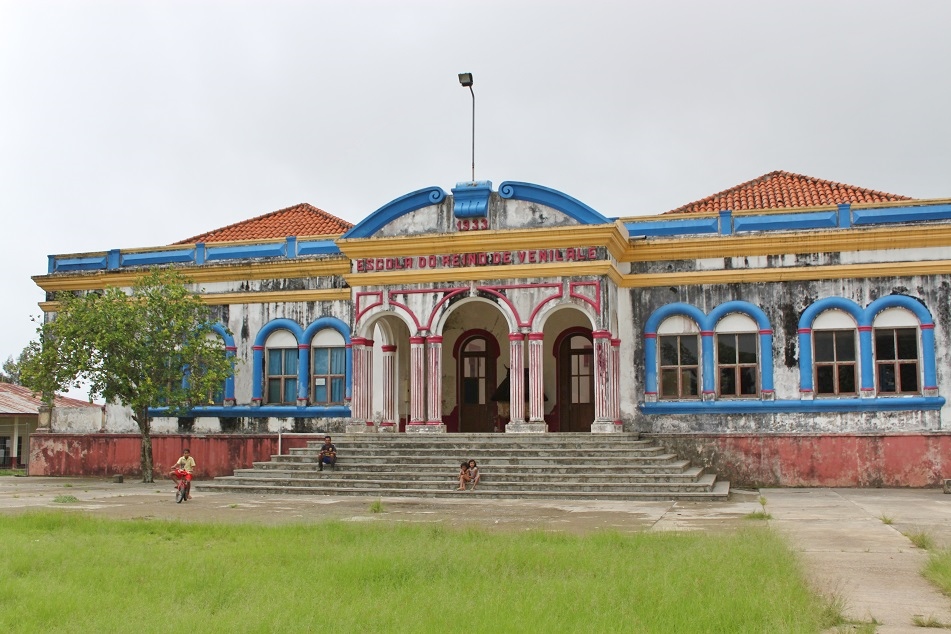
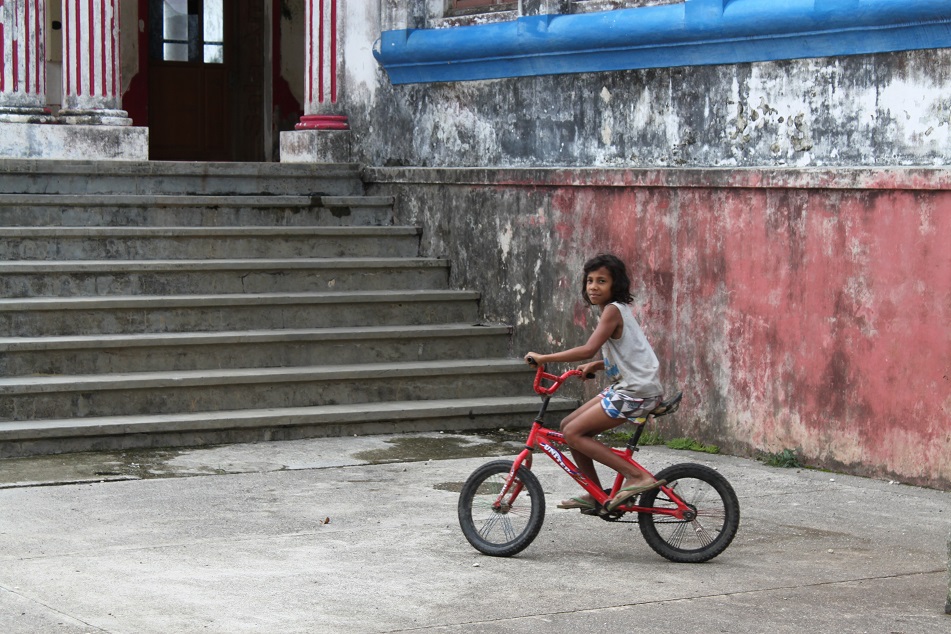
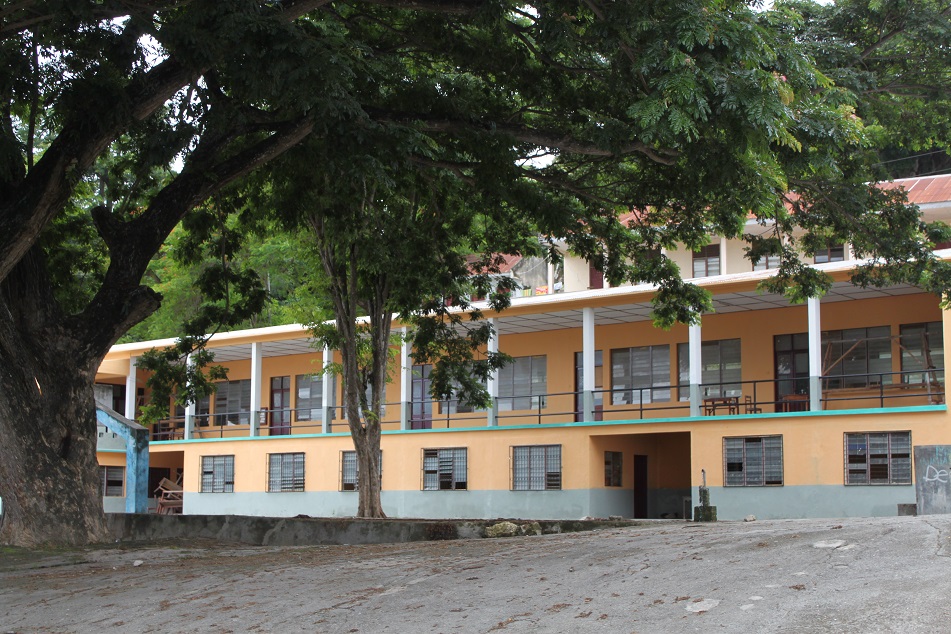
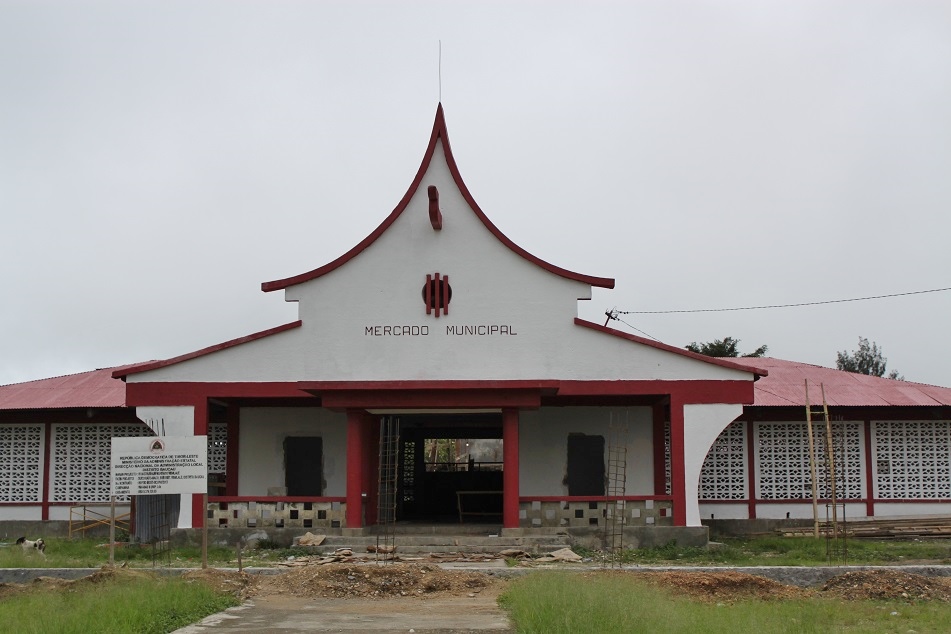
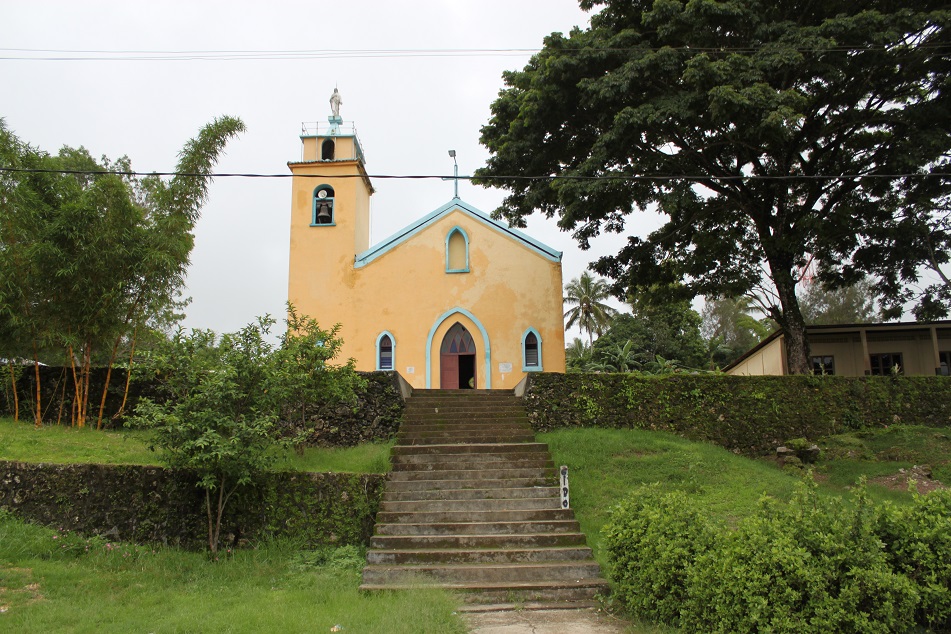
The smiling and beautiful faces of the children are a stark contrast to the tragic history of the caves. Excellent post!
LikeLike
Indeed. They came out of nowhere and not long afterwards our guide had already been playing with them. Such adorable children. Thanks Sue!
LikeLike
Bama, what a beautiful way to wrap up the series on East Timor. Your photos turned out much nicer and you captured some lovely moments – the girl on the bicycle is one of my favourites. There are some great insights in the write-up too. It’s a good thing you mentioned the gapura and Indonesian road signs, I didn’t notice them at all during the journey!
LikeLike
Thanks James! Simon was driving quite fast and I’m glad I was not sleeping when we passed through this small village between Baucau and Venilale where that derelict gapura is located. I must say our trip to East Timor was really worth it – and such a stark contrast from the colorful scenes of Bali before and after the trip. Secretly I was hoping that Simon would forget that our last destination was Venilale and continue further south to Viqueque. Oh well, maybe next time. 🙂
LikeLike
I always enjoy your travel narrative.
Say, Bama, do you write for travel magazines?
LikeLike
Thank you Eki!
Almost two years ago I submitted an article to a travel magazine in Bahasa Indonesia, but I haven’t heard back from them since then. In the past one year it’s practically almost impossible to keep writing for this blog, meet the very challenging deadlines at work, while at the same time writing for travel magazines. However one article of mine has been published this month on a Bali-based free travel magazine.
LikeLike
You write so well, Bama. I thought you were a travel mag journalist or writer. But well, they do have their own rules, I suppose. You should probably consider publishing your own books. Or, have you?
LikeLike
Thank you again, Eki! I’m really humbled. Writing a book is one of my long-term aspirations, but for the time being I’m still focusing on this blog (and stay open to any opportunities). 🙂
LikeLike
Bama, good article & photos …
I hope The smiling faces of the children is a sign that a new history begin.
Warm regard from Lampung, Indonesia
LikeLike
Thank you! We all surely hope so, after what the country and its people had to endure.
LikeLike
Reblogged this on Voices and Visions.
LikeLike
One more informative post, Bama.
Great to see people moving on in life and the smile of the kids.
Have a great day 🙂
LikeLike
Thank you, Sreejith!
In such an intense trip, those kids’ smiles really lightened up the day. I do hope the future is bright for them.
Have a great day too!
LikeLike
Another great post Bama. I wonder if one day i can travel around Indonesia and visit Timor Leste. Thanks God dark history has been bury and the smile on children face is growing..
LikeLike
Thank you! You shouldn’t wonder, but plan instead. 🙂 By having that goal in mind, you’ll be more focused on reaching it, no matter what. It’s indeed an encouraging thing to see that relations between Indonesia and Timor-Leste now are far better than during those 24 years of occupation.
LikeLike
Thanks for another great history lesson.
I think your point about the oil companies was well made. The unequal distribution of wealth certainly exists in the US also, whether it be from oil or other giant corporations, and it’s getting worse. I don’t know how these smaller less developed countries can fight it.
It’s always wonderful to see children having fun!
LikeLike
My pleasure, Marilyn!
As people said, oil can be blessing or curse, depending on how it is managed. Sadly in many parts of the world the latter is more prevalent. Nevertheless, it was such a delight to see those children playing around and laughing.
LikeLike
Another well-written and organized vignette into daily life in East Timor! The context that you provide adds such richness! The best being how East Timorese struggle with the history of an indifferent colonial ruler, the dictatorship of Suharto that brought some infrastructur, and the current wealth and corruption that ruin the optimism of this young country.
LikeLike
Thank you. For a small country like East Timor, it has certainly been through very long troublesome years since the Portuguese made it a colony. I guess that’s why hope runs high in the young country.
LikeLike
Hi Bama, anoither insightful post. The beautiful smiles and cheerfulness of the children belie the tragic history and current economic condition of this country. it sounded like the government has a long way to go in learning how to manage distribution of wealth and to eliminate corruption. But it’s good that there are people like Johnny who remains hopeful for his country.
LikeLike
Hi Marisol. Thank you! The government surely have lots of homework to ensure those smiles of East Timorese young children will last for years to come. Learning from other countries who have been successful in managing and distributing wealth is one thing, but implementing it is another thing. However, like you said, it’s good to see people who remain hopeful.
LikeLike
Fascinating post…..menarik skl! Love the photos of the kids and the caves great! Another place to visit……and you know corruption is of course an issue and sadly its in every country in some form or other.. thanks for sharing Trees
LikeLike
Makasih Trees! I believe there’s no country which is free from corruption completely. However, active involvement from the people is generally the prerequisite to lowering corruption level in a country. Hence the importance of freedom of speech and transparency.
LikeLike
benar agak setuju : )
LikeLike
Beautiful and a very well written post, Bama. I love the stories the locals of a particular place choose to tell. It’s truly magnificent. I also enjoyed the photos! I agree that there’s a lot that needs to be done, hope is still there.
LikeLike
Syukran, Lenny! I just learned that you’re from Egypt, a country I have long wanted to visit. But given the current unfortunate circumstances in the country I might need to hold that plan a little while. Egypt, Timor-Leste, Indonesia we all have problems at home. But let us never give up hope, for hope is what we need to endure anything.
LikeLike
El afaw (You’re very welcome, Bama.) 🙂 Hope you don’t mind me asking are your travels work related or mostly for leisure purposes? I’ve always wanted to visit Indonesia, I have heard it’s magical over there. I hope you do visit Egypt when things (hopefully) settle down. Agreed, hope truly is what we need to endure anything. 🙂
LikeLike
Last year it’s roughly equal between the trips I made due to work and those purely for leisure. I don’t know about this year though, since I will be starting a new job this March. Indonesia is really underrated compared to its Southeast Asian neighbors, even though recently it’s gaining more popularity in the region. You can look up my old posts on Indonesia to give you some inspiration on which places you want to go – not that I’ve been to that many destinations in my own country though.
LikeLike
Thank you Bama! I look forward to your next post! 🙂
LikeLike
Great narrative and a fascinating but sad history. How long before things start to improve I wonder/
LikeLike
Thank you, Suzanne! The future of the country lies on the hand of its own people, who hopefully elect the right people as their leaders. Too many countries are failing in fulfilling the needs of its people, and I surely hope East Timor is not one of them.
LikeLike
What’s the beautifully narrated travel experience.
Thanks for sharing your thoughts with us.
LikeLike
Thank you!
LikeLike
Amazing blog!
LikeLike
Thank you!
LikeLike
Great stories of East Timor, Bama … Thanks for sharing 😉
LikeLike
Thank you, Timothy! It was a great experience to visit what was once a part of Indonesia.
LikeLike
A tragic history, and very moving with your words and with your photos. The shots of the children are beautiful…happiness and hope lies within them. Great, great writing Bama.
LikeLike
Thank you again, Randall! We all surely hope so. Centuries under foreign oppression should be enough for them to change things and move towards a better future, together.
LikeLike
What and amazing journey! Well written. Looking forward to your future travels ;D
❤ Carsla
Founder & CEO of Connect-the-Cloths
http://www.connect-the-cloths.com
A stylist, foodie, & writer's blog in development.
LikeLike
Thank you, Carsla!
LikeLike
Aih……really love ur way of telling stories!
TWB
LikeLike
Thanks Alex! I would love to travel as much as you! 🙂
LikeLike
Grass is always greener at the other side :). i believe one day, i would love to have a routine job and settle down as well 🙂
TWB
LikeLike
I love your 2011 resolution!! I can’t wait to read more on your adventures, I’m so excited to see you are having the time of your life!
As an avid traveler myself, in the past 8 years I’ve lived in 6 countries so I just started blogging about my travel (amongst others) adventures!! Come check it out! 🙂
http://www.lamodaviaggia.wordpress.com
LikeLike
Thank you, Ale! Basically I’m doing what I like doing, with extra commitment. 🙂 Good luck with your travels!
LikeLike
Amazing Bama!
LikeLike
Thanks Dakota!
LikeLike
Welcome 😉
LikeLike
Another fascinating post Bama. Your people shots are exceptional, particularly the one of the little girl on her bike.
LikeLike
A very big thank you for such an encouraging comment, Madhu! Some East Timorese were very shy, so I had to wait for that moment when I managed to capture their friendliness on camera.
LikeLike
Beautiful pictures! I have two friends which will go to Timor for two years ( Volunteers!)
LikeLike
Merci Vivien! Volunteering in Timor-Leste sounds very interesting, given the challenges and opportunities the young nation has.
LikeLike